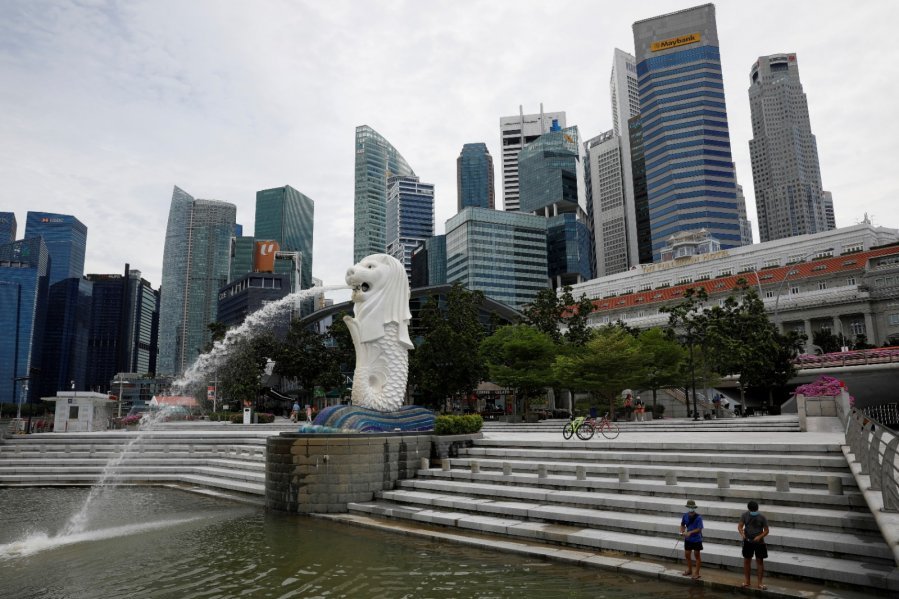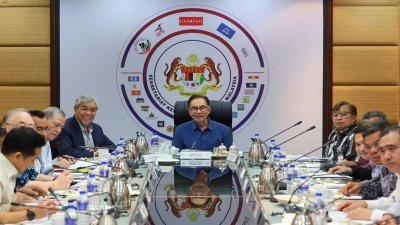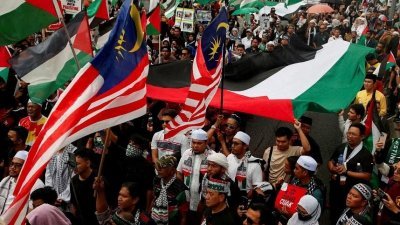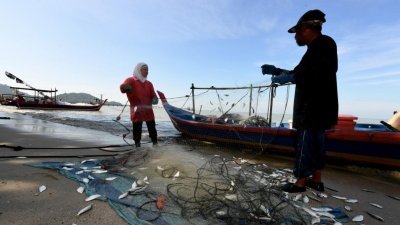最近有两则新闻——一篇是关于个人的新闻,另一篇则涉及公共领域的新闻——为马来西亚的发展方向,提供了令人深思的讯息。
第一则是有关新加坡新闻,这个一度被邻国嫉妒的政治领导人称为“小红点”的国家,如今赢得了令人渴望的世界最富有国家称号,人均收入为21万5512新元/约75万1655令吉。
新加坡的强势经济地位可从其与排在其后国家的显著差距中凸显出来。
卢森堡以人均收人19万5142新元/68万2279令吉位居第二,而卡塔尔则以人均收入17万0963新元/约60万令吉排名第三。 第四至第十位排名依序为爱尔兰、阿联酋、瑞士、挪威、美国、圣马利诺和汶莱。
一个没有自然资源、缺乏足够水供的国家是怎样成为世界上最富有的国度,我们不需要博士论文般解剖,都能找到答案。
新加坡的成功可归功于其人力资源,而这其中很大一部分是从跨过新柔长堤到新加坡寻找新发展和新生活的前马来西亚人组成的。
新加坡的经济基础可说是由吴庆瑞博士、杜进才博士、蒂凡那和其他前马来西亚人奠定的。他们的信念包括追求绩效、实用主义和不贪污。
许多马来西亚人移民到更欣赏他们才能的国家。其中许多人为他们的新祖国做出了非常出色的贡献——无论是在新加坡、西方还是在靠近马来西亚的亚洲地区国家。
第二则新闻则是拿督拉美斯占德拉(Datuk Ramesh Chander )的去世,我与他近年来一起撰写的评论,就是希望这些分析能够影响政策制定者和政府,以应对马来西亚面临著的经济挑战。
不过,我们的一些社交媒体只将逝世于美国华盛顿的拉美斯占德拉,视为大马统计局第一任局长之逝世。
但他不仅仅是一个普通的或一般的政府部门负责人。
作为一位发展经济学家先驱,其成果不只是为刚独立的马来西亚开发了一套完整且仍在使用的统计系统,其专长更涉及广泛的社会经济领域,以及与国家经济发展和福祉相关的问题。
新经济政策滥用
没有多少人意识到拉美斯在帮助制定新经济政策统计数据方面所发挥的作用,新经济政策最初承诺于消除贫困,重组经济结构,打造一个公平与平等的社会。
拉美斯和当时许多非马来公务员官员一样,希望新经济政策能促进马来人的经济参与和自力更生,进而为加强民族团结作出贡献。当时的协议是新经济政策20年内,给予马来人的配额、福利和特权,足以让马来社会发展起来,能在经济和社会各领域,与其他族群在平等的基础上竞争。
拉美斯和1970年代的非马来人是多么错误。很少人知道拉美斯对随后新经济政策的种种缺陷,以及政策执行过程中持续存在的滥用行为、腐败、管理不善感到多么失望。本应于1990年终止的马来人优惠条款依然继续存在,就是这些缺陷的显现。拉美斯在1977年离开马来西亚时,已预见了亲马来人政策和种族关系的发展。
拉美斯退休后,他的专业知识得到了世界银行的认可,并被任命为世界银行总部的统计顾问。住在华盛顿特区的拉美斯,在帮助发展中成员国建立统计能力,以及世界银行统计系统方面发挥了关键作用。
但拉美斯的心和关怀始终在马来西亚。这可从他对这国家的经济状况,通过学术上的批判,给予强有力的贡献。离开马来西亚后,他依然关注塑造和破坏马来西亚发展和未来的社会经济发展。
拉美斯的大部分贡献都是在幕后的,而且不太可能受到承认或赞赏。
我很荣幸能拥有他的友谊、同志情谊和分享其智慧;并与他合写了一些分析,如:昌明大马对马来西亚经济规划影响:国际货币基金组织报告和第12大马计划改革;错失良机的2023年预算案; 种族意识的“大马一家”预算案; 以及类似的批评文章。
我对这两则新闻总结是:
一个不腐败、具有成本效益的政府和没有种族偏向政策的公务员制度,是马来西亚进步所需要的条件。同时,要阻止有才华的马来西亚人外流。
林德宜《小红点与前马来西亚人》原文:The Little Red Dot and Ex Malaysians
Two recent news items - one personal and the other in the public sphere - provide further food for thought on the direction of Malaysia.
The first was a report that Singapore - at one time referred to by an envious political leader from a neighbouring nation as “the little red dot” - has now won the coveted title of the world’s richest country with a per capita GDP of S$215,512
Singapore’s economic dominance is highlighted by a significant margin separating it from its closest competitors.
Luxembourg claimed the second position with a per capita GDP of S$195,142. Meanwhile, Qatar took the third spot with a per capita GDP of S$170,963. The fourth to tenth positions in the ranking were occupied by Ireland, the United Arab Emirates, Switzerland, Norway, the United States, San Marino, and Brunei, respectively.
How is it that a country without natural resources and not enough water for its population to wash themselves has become the world’s richest country does not require a Ph.D thesis to arrive for the answer?
It is found in Singapore’s human resources, a large part of which consists of ex Malaysians who left and found their new careers and homes across the causeway.
The foundations of Singapore’s economy were put in place by Dr. Goh Keng Swee, Dr. Toh Chin Chye, Devan Nair and other fellow ex Malaysians. Their credo included meritocracy, pragmatism and non corruptibility.
Many Malaysians have migrated to other countries that have been more appreciative of their talent. Many have done remarkably well for their new motherland - whether in Singapore, the West or in Asia, closer to Malaysia.
The second news item relates to the passing away of Datuk Ramesh Chander, my fellow commentator in various recent analyses that we hoped would influence policy makers and the Government on the economic challenges that Malaysia faces.
Ramesh’s death in Washington D.C. was reported in some of our social media as the loss of the nation’s first chief statistician.
But he was much more than an ordinary or the usual head of a government department.
A pioneer development economist whose work resulted in the development of a full and still in use statistical system for an independent Malaysia, his expertise extended to a large range of socio-economic sectors and issues relevant to the economic development and well being of the country.
Not many are aware of the role that Ramesh played in helping develop the statistics for the New Economic Policy with its initial promise of helping bring about the eradication of poverty and to rebalance the economy to ensure a just, fair and equal society.
Ramesh, like many non Malay civil servant officials of that period, was hopeful that the NEP would provide a boost to Malay economic participation and self-reliance that would contribute to greater national unity. The agreement at that time was that the NEP’s 20 years of Malay quotas, perks and privileges would be sufficient to put the community into a position where the Malays would afterwards compete on an equal basis with other racial groups in all the sectors of economy and society.
How wrong Ramesh and that 1970’s generation of non Malays were.
Few are aware of how disillusioned Ramesh became with the subsequent defects and abuses of the policy’s implementation and its corruption and mismanagement that have continued. These shortcomings are still evident with Malay preference provisions which should have ended in 1990. Ramesh himself saw the writing on the wall on pro Malay policies and race relations in the country as he left Malaysia for good in 1977.
Ramesh’s expertise was recognized by the World Bank following his retirement when he was appointed as Statistical Adviser in the Bank’s headquarters. Living in Wash D.C. he played a key role in helping build the statistical capacity of developing member countries as well as the Bank’s statistical system.
But Ramesh’s heart and concerns were always located in Malaysia. And this accounts for his quiet and intellectually critical but robust contribution on the state of the nation’s economy. After he left the country he continued to monitor the socio-economic developments shaping and misshaping Malaysia’s development and future.
Much of Ramesh’s contribution was behind the scenes and is unlikely to be acknowledged or appreciated.
I was privileged to have his friendship, camaraderie and wisdom; and he co wrote with me various analyses on the impact of Madani-zation on Malaysia’s Economic Planning; IMF’s report card and overhaul of the 12th Malaysia Plan; the missed opportunities of Budget 23; the racially contorted ‘Keluarga Malaysia’ budget; and similar critical articles.
The bottom line for me on these two news items is
A non corrupt, cost efficient government and civil service without racial preference policies are what is needed for Malaysia to advance. And also to stop the outmigration of talented Malaysians.
要看最快最熱資訊,請來Follow我們 《東方日報》WhatsApp Channel.


















